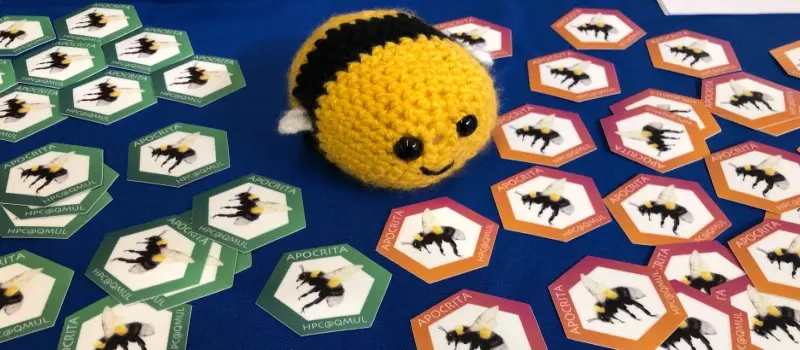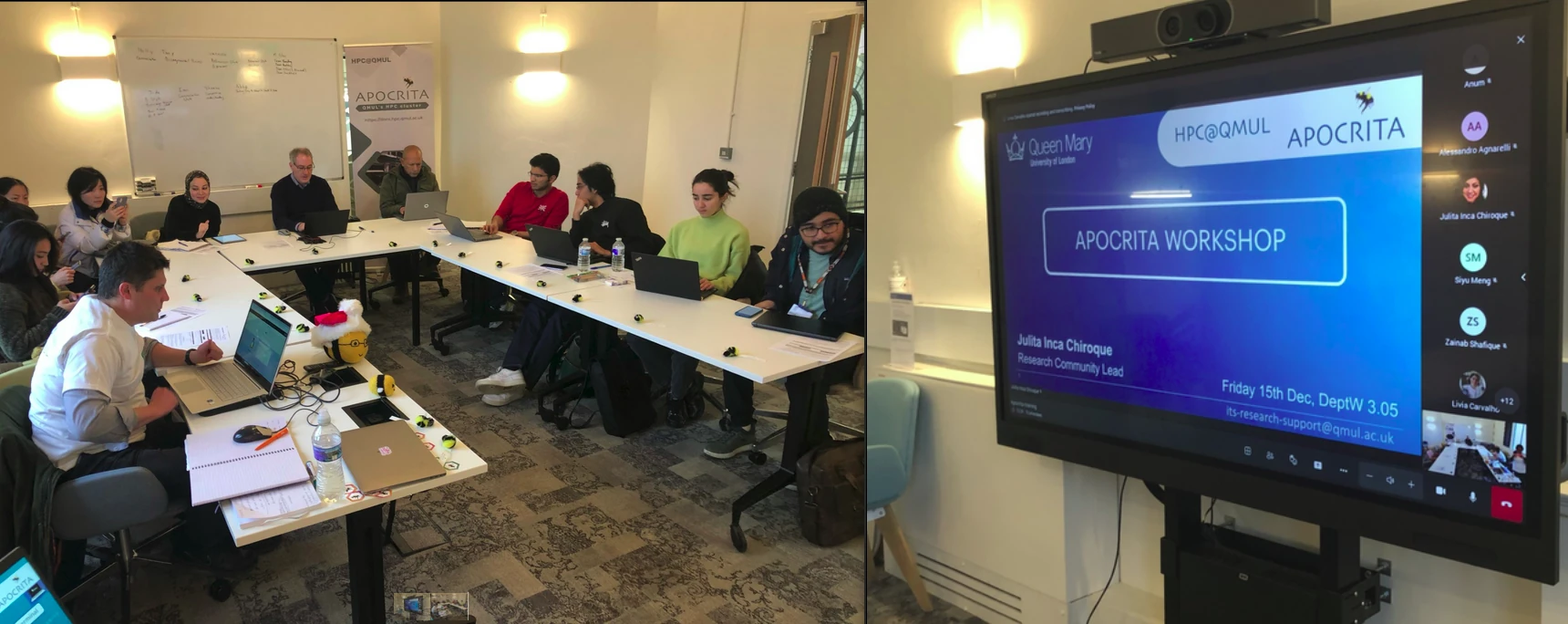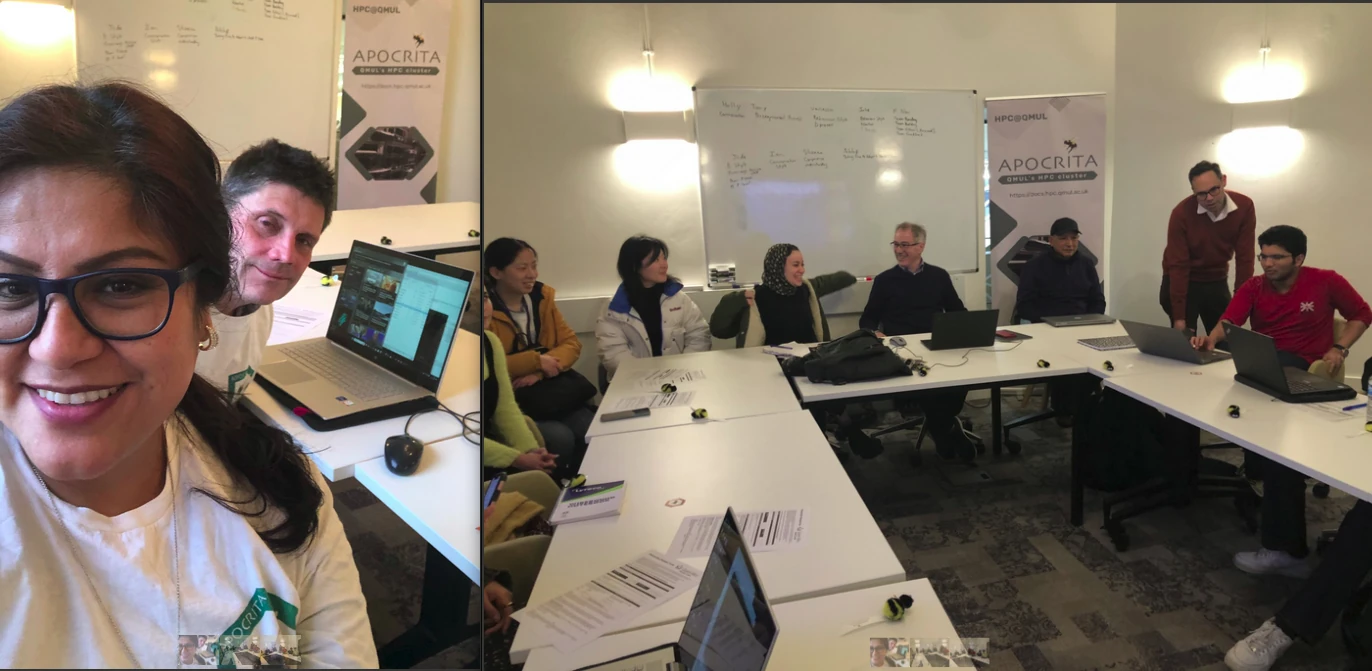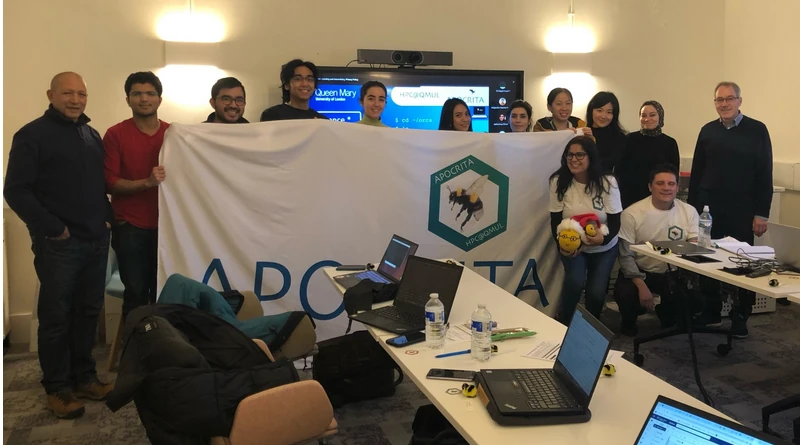Apocrita Workshop¶
We held a 2-hour HPC workshop last Friday, December 15th. We arranged an agenda in coordination with the research student at QMUL, Peter Alexander Lock. It covered the generalities of Linux, accessing Apocrita, submitting jobs, and HPC commands.
The workshop brought together 32 attendees, a combination of students and supervisors from several schools, including the School of Biological and Behavioural Sciences, the School of Physical and Chemical Sciences (in person and online), in room 3.05 of the Department W building. There were basically two goals: to become familiar with Linux CLI and to launch a job in Apocrita from a student’s laptop, regardless of the OS of the laptop.
The students did a couple of hands-on Linux and HPC exercises relating to good file management in the Apocrita cluster to submit an HPC job of a dihedral scan of ethane to calculate the torsional energy barrier. We used a script which loads pre-built packages for the Orca application, and also requests cluster resources such as CPU and memory Most of the attendees succeeded in this experience, the job was completed in around 25 minutes. After that, the users were able to visualize the output files of their submitted HPC jobs and their status in the cluster.
I think it was a great opportunity to start forming a solid HPC community at QMUL. Special thanks to Professor Richard Pickersgill for his positivism, enthusiasm, and collaboration throughout the session. Using a Windows laptop, he was able to successfully access Apocrita for the first time.




